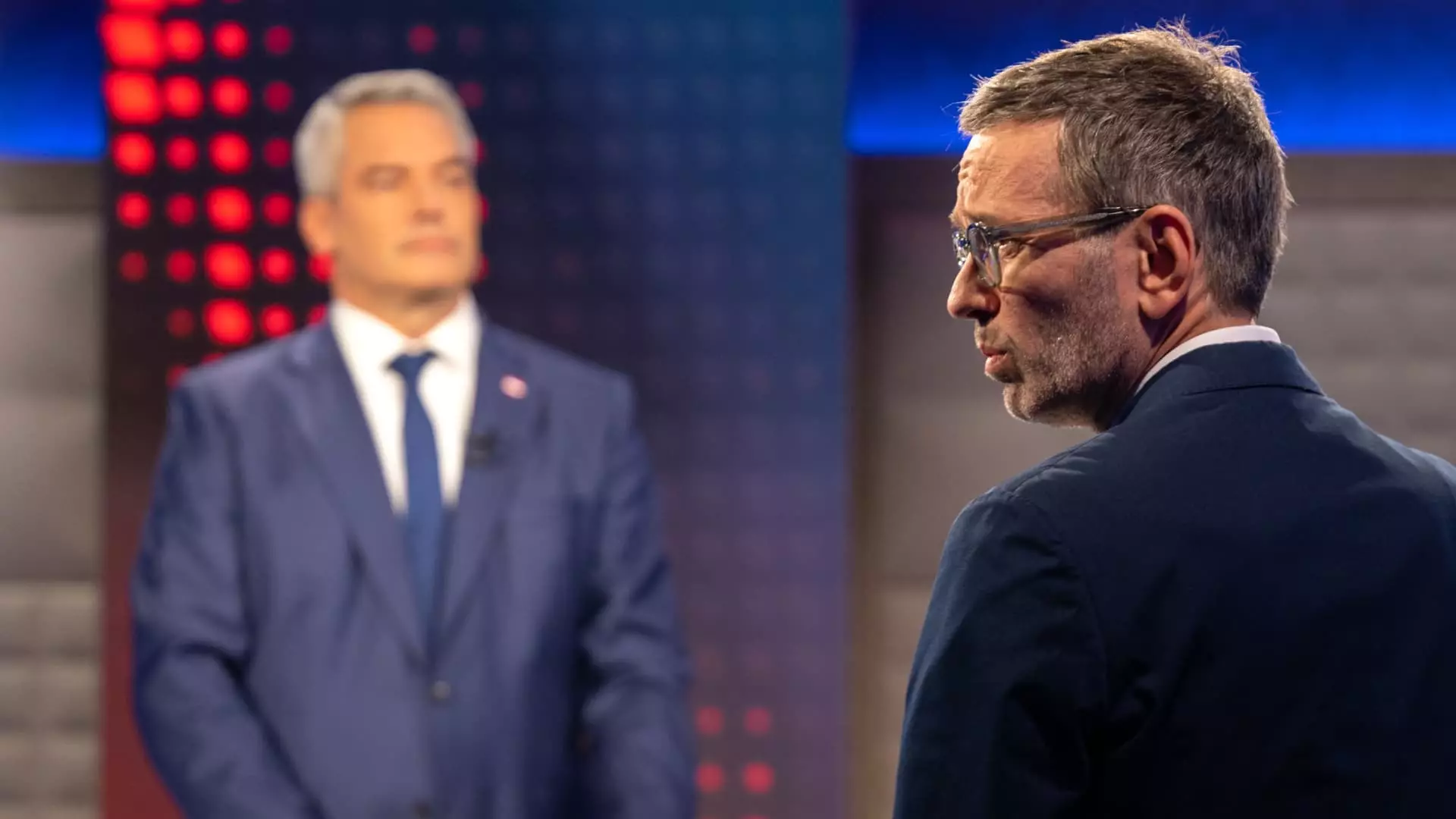The Austrian political landscape is at a critical juncture as the far-right Freedom Party (FPO), led by Herbert Kickl, gears up for a parliamentary election that could mark a watershed moment in the country’s political history. The upcoming election is steeped in tension and uncertainty, as recent opinion polls suggest an exceedingly close race between the FPO and the more traditional Austrian People’s Party (OVP). Despite Kickl’s earlier dominance in polling, Chancellor Karl Nehammer’s OVP has significantly narrowed the gap, indicating that the outcome remains highly unpredictable.
Kickl’s FPO has made immigration the focal point of its campaign, resonating with voters who feel disillusioned amid rising inflation and economic challenges that exceed the European Union average. The frustrations of the electorate have coalesced around sentiments regarding immigration control, thereby amplifying the FPO’s messaging. Even in light of declining migrant numbers, Kickl advocates for stringent policies, including a proposed “Fortress Austria” aimed at repelling migrants at the borders and halting asylum claims altogether. This platform plays directly into the fears and anxieties of a populace grappling with economic instability.
The economic discontent among voters is further compounded by perceptions of government inefficacy in addressing issues like inflation. As the FPO capitalizes on this sentiment, it appears to be effectively mobilizing a base that feels overlooked and marginalized. The stark contrast in approaches between Kickl and Nehammer exemplifies a deeper ideological divide, with the former adopting a more aggressive and polarizing stance compared to the latter’s appeal for unity and stability within the political center.
Herbert Kickl has cultivated a populist persona, rallying supporters with fervent speeches that highlight a struggle between the “people” and the “system.” His proclamations, like “the people are always stronger than the system,” echo a broader populist narrative seen in various global political movements. This rhetoric not only galvanizes his supporters but also sharpens the divide between his party and the establishment represented by Nehammer’s OVP. Kickl’s closing campaign event, set against the iconic backdrop of St. Stephen’s Cathedral, exemplifies his theatrical approach to politics, emphasizing the symbolism of his grassroots appeal against a backdrop of historical significance.
In response to the rising profile of the FPO, Nehammer has sought to position himself as a stabilizing force in a chaotic political environment. His characterization of Kickl as an extremist serves to reinforce the OVP’s attempts to court moderate voters who may feel threatened by the FPO’s radical proposals. Nehammer’s own adept handling of recent crises, such as severe flooding in Austria, has also contributed to his image as a competent leader, further contrasting him against Kickl’s more combative style.
The stakes are high for both parties as they navigate the fragmented political scene. A lack of absolute majority in the upcoming election means coalition-building will be inevitable. For the FPO, the most plausible alliance would be with the OVP, despite Nehammer’s initial reluctance to share governance with a party that he deems radical. The dynamics of potential coalitions could reshape the future of Austrian politics, impacting everything from policy decisions to national governance.
As the election date approaches, voters will be making a decision not solely about their immediate grievances but also about the trajectory of Austria’s political ideology. Will the FPO’s populist messaging and focus on immigration resonate enough to secure a historic victory? Or will Nehammer’s appeal to moderation and stability be deemed more palatable by an electorate wary of extreme shifts? Regardless of the outcome, the election will undoubtedly set the stage for a transformed political landscape in Austria, potentially leading to an era marked by renewed debates around nationalism, economic policy, and governance. The results will not only shape the immediate future but could resonate for years to come, influencing the broader dynamics of European politics.

Leave a Reply